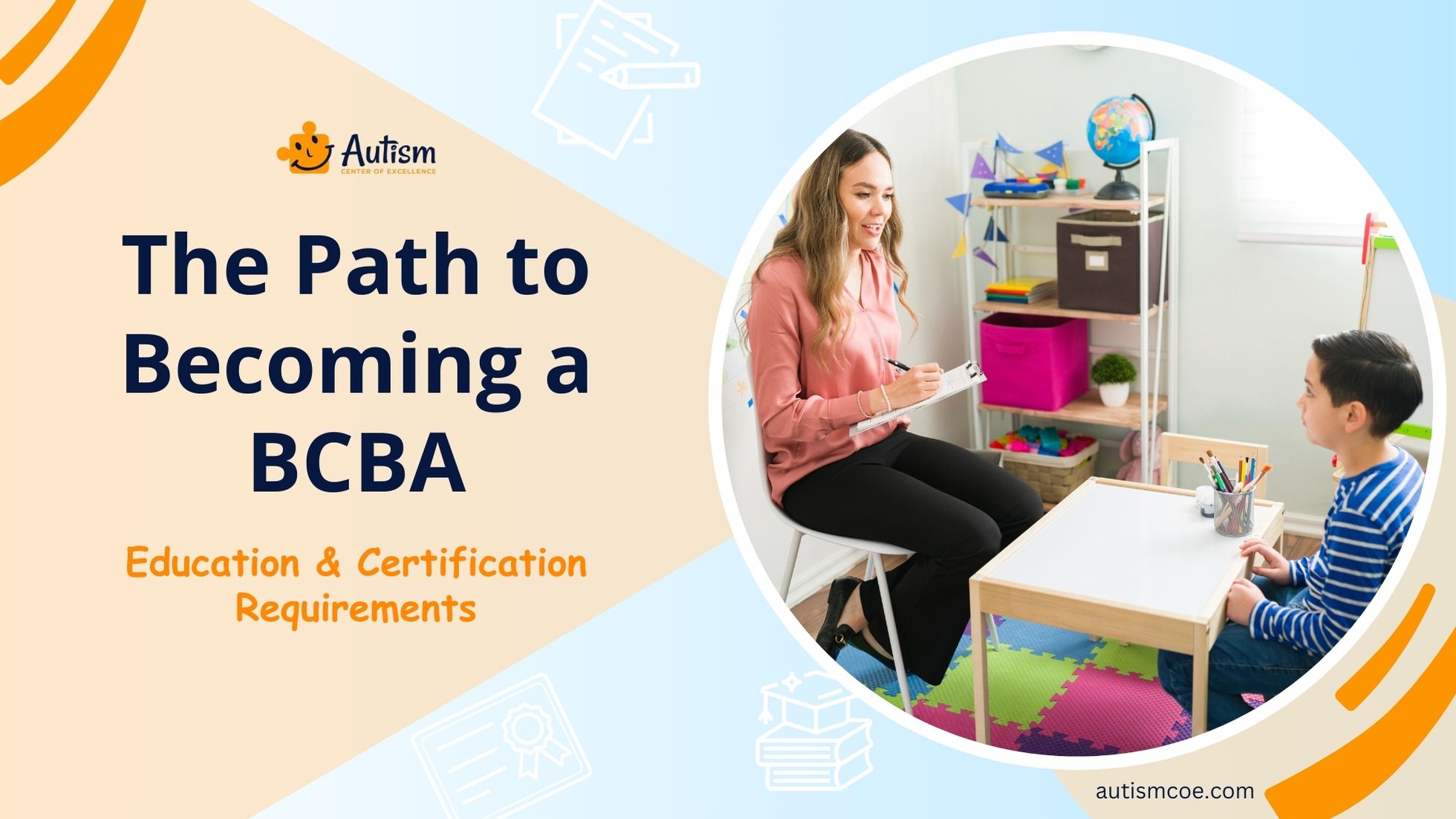If you have an interest in helping individuals with Autism or other developmental disorders, the path to becoming a Board Certified Behaviors Analyst (BCBA) is rewarding but challenging. Given the increasing demand for qualified professionals in the Applied Behavior Analysis (ABA) area, it is essential for any future BCBA to comprehend the whole steps of this certification.
This guide will present critical steps that lead one toward fulfilling the educational, training, and certification criteria for a Career as a BCBA. If you are a student of psychology, thinking of this as a career, a professional in the field of special education, or just someone who is determined to make a change, this article will give you an easy path to success.
What is BCBA Certification?
BCBA is a credit that is given to individuals who have taken intense training in ABA. BCBAs develop, implement and supervise targeted Intervention Programs aiming to reduce the problems individuals requiring behavioral support have.
Read for More Details: What is a Board-Certified Behavior Analyst (BCBA)?
Basically, BCBA is the forefront of one of the most effective and data-driven approaches to improving behaviors and skills in a wide range of areas from education and medicine to business and government that is well-recognized. The BCBA credential is much more than a name; it is a dedication to evidence-based practices and a ticket to an ever-expanding, highly rewarding field of work. However, where does one begin? Let’s get into the particulars.
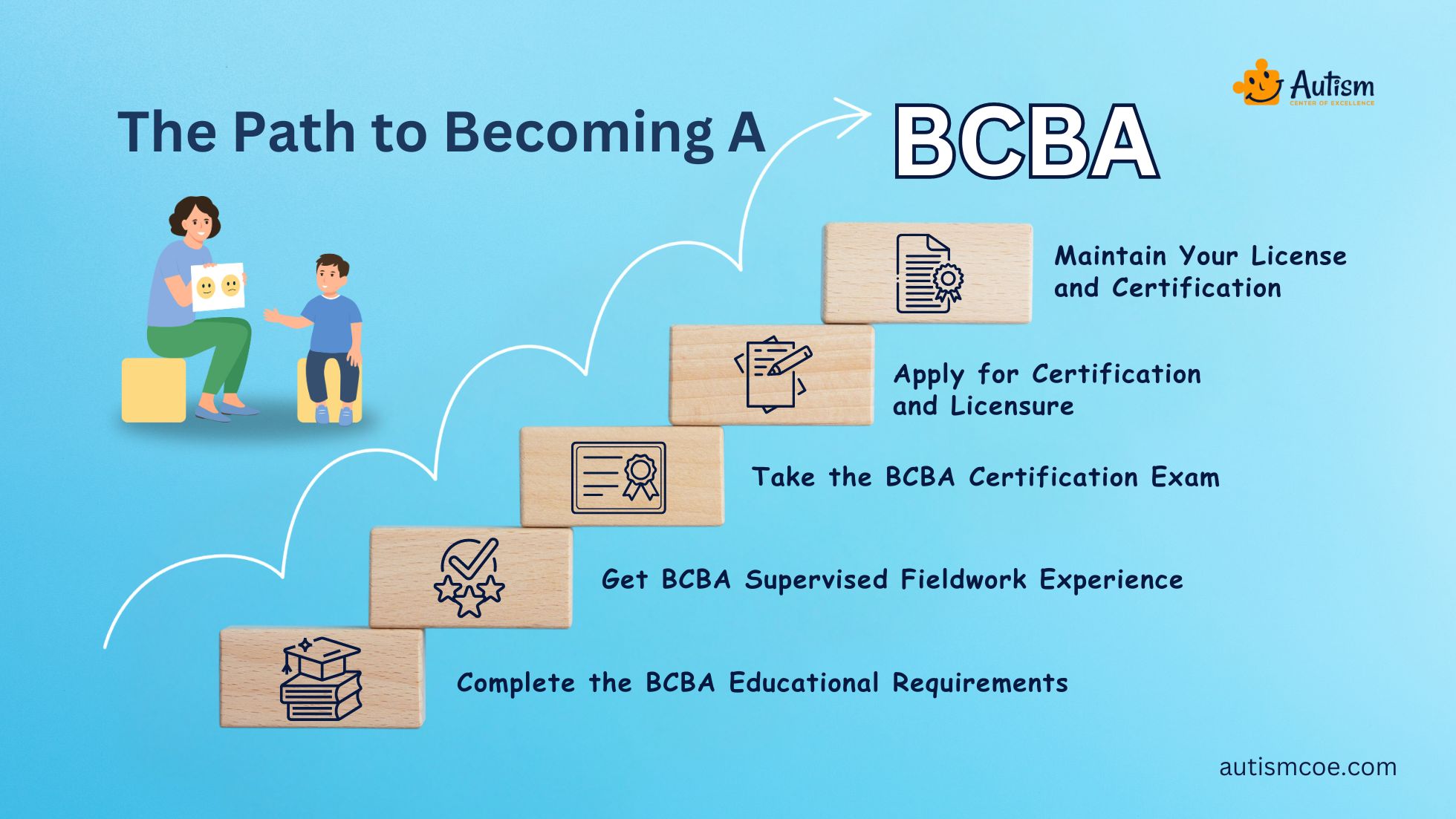
How to Become a BCBA?
The process of becoming a BCBA is broken down into a set of critical steps. These steps are to complete the appropriate educational coursework, to acquire supervised fieldwork experience, to take the certification examination, to apply for BCBA certification and licensure, and to participate in continued education to remain certified. Now let us elaborate on each of these steps.

Step 1: Complete the BCBA Educational Requirements
The Educational Requirement set by the Behavior Analyst Certification Board (BACB) is the first major milestone in becoming a BCBA. The BACB requires one to complete a graduate degree from an accredited institution, which contains a curriculum covering core areas that the board specifies. Numarous Master’s and Doctoral Degree Programs concentrated on Applied Behavior Analysis (ABA) is offered for BCBA candidates. These programs not only communicate theoretical information but also offer students practical skills that are necessary for a career in behavior analysis.
Pathways to Meet BCBA Requirements
There are four pathways through which individuals can meet the eligibility requirements set by the BACB:
Pathway 1: ABAI-Accredited Degree
This route focuses on receiving a master’s degree or higher from an APBA (Association of Professional Behavior Analysts)-accredited program or an ABAI (Association for Behavior Analysis International)-accredited or recognized behavior analysis degree program.
Pathway 2: Behavior-Analytic Coursework
This alternative pathway enables those with a graduate degree to satisfy BACB-needed coursework, improving their knowledge of behavior analysis principles.
Pathway 3: Faculty Teaching and Research
People can choose to follow this route by participating in teaching and research activities in behavior analysis after they have obtained a graduate degree.
Pathway 4: Postdoctoral experience
Postdoctoral experience in Applied Behavior Analysis presents a viable pathway for those seeking to obtain a BCBA after completing a doctoral degree.
Each pathway demands unique opportunities and challenges and candidates are allowed to choose a way which accords with their educational and professional aims on the road of becoming a certified and successful BCBA.
Join Our Weekly Newsletters!
Subscribe now to stay updated with our latest email updates.

Step 2: Get BCBA Supervised Fieldwork Experience
When the necessary course work is finished, what follows is the fieldwork. This part of the training enables you to practice your theoretical knowledge in the presence of BCBA or BCBA-D (Board Certified Behavior Analyst-Doctoral).
How Many Hours of Supervised Fieldwork Does a BCBA Have?
The BACB requires that you finish 2,000 hours of supervised fieldwork and at least 75% of those hours must be under the BACB’s Experience Standards. These guidelines are meant to make certain that you are delivering efficient and ethical Behavior Analytic Services.
Fieldwork is a fundamental learning phase in which you will work face to face with clients, manage behavior plans, track progress, and have ongoing contact with your supervisor for feedback and direction. This is a good chance to practice and sharpen your skills, to work with real-life problems, and to bring actual benefits into the lives of the needy.
Choosing the location of your fieldwork is a very important decision. Make sure to select an organization with a BCBA supervisor who is committed to your success and growth. Consider that the quality of your supervision can make or break your preparedness for the next step in the certification process.
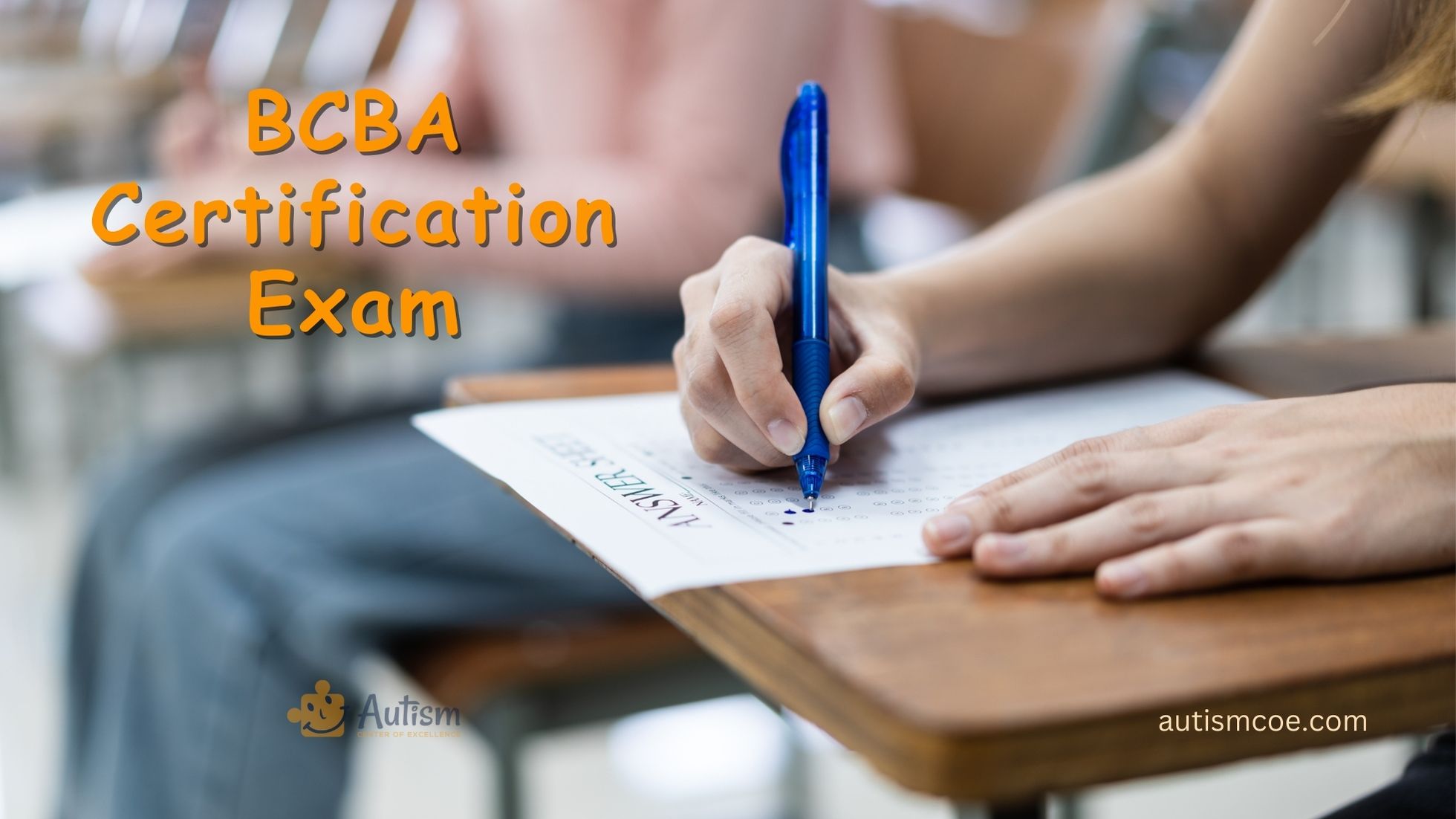
Step 3: Take the BCBA Certification Exam
After finishing your educational coursework and fieldwork experience, you will take the BCBA certification exam that will be successful for you in the end. This is a standardized test that assesses what you know and what you can do across the different domains of ABA, as defined by the BACB.
Preparation for the BCBA exam is a massive commitment, and luckily, there are many different resources available to help you study. Think of joining study groups, prep books and online materials and practice tests.
In the day of the exam, stay cool and have faith in your preparations. Keep in mind that the test is intentionally tough to make it so that not everyone will pass the first time. Do not be discouraged if you belong to that group. Leverage on your experience to improve on your weak areas and have another go with a renewed spirit.
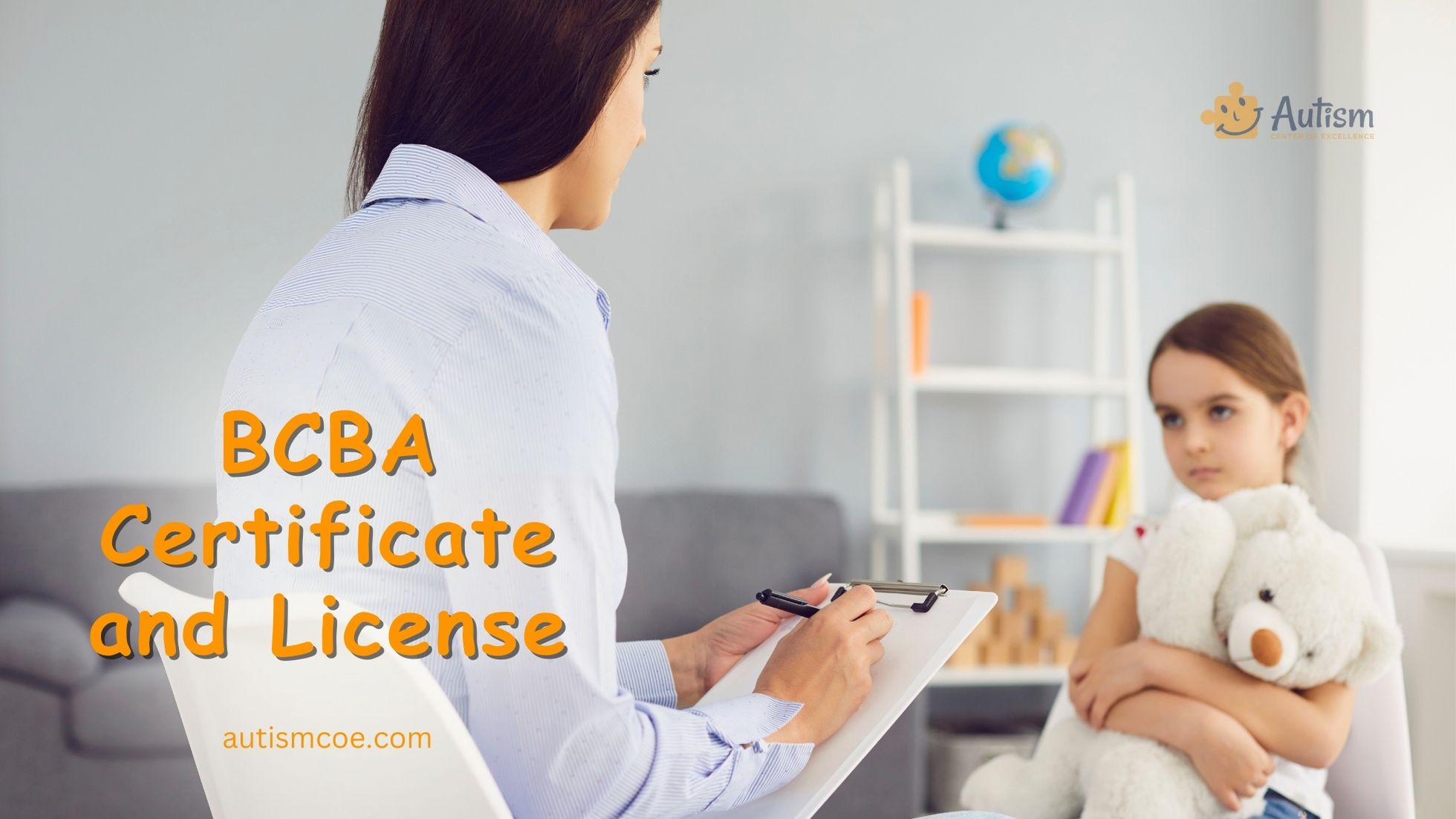
Step 4: Apply for Certification and Licensure
Shortly after passing the certification exam, one can proceed to apply for BCBA certification as well as any required state licensure. BCBA Licensure requirements change from one state to another; therefore, it is necessary to research and understand the exact guidelines for your area.
The application process is typically quite straightforward and involves the submission of your BCBA exam scores, educational transcripts, and documentation of your supervised fieldwork. Some states might also ask for extra measures like background checks or jurisprudence exams.
Approval of your application makes you a BCBA. This is a thrilling moment because it represents years of toil and commitment to your career growth.
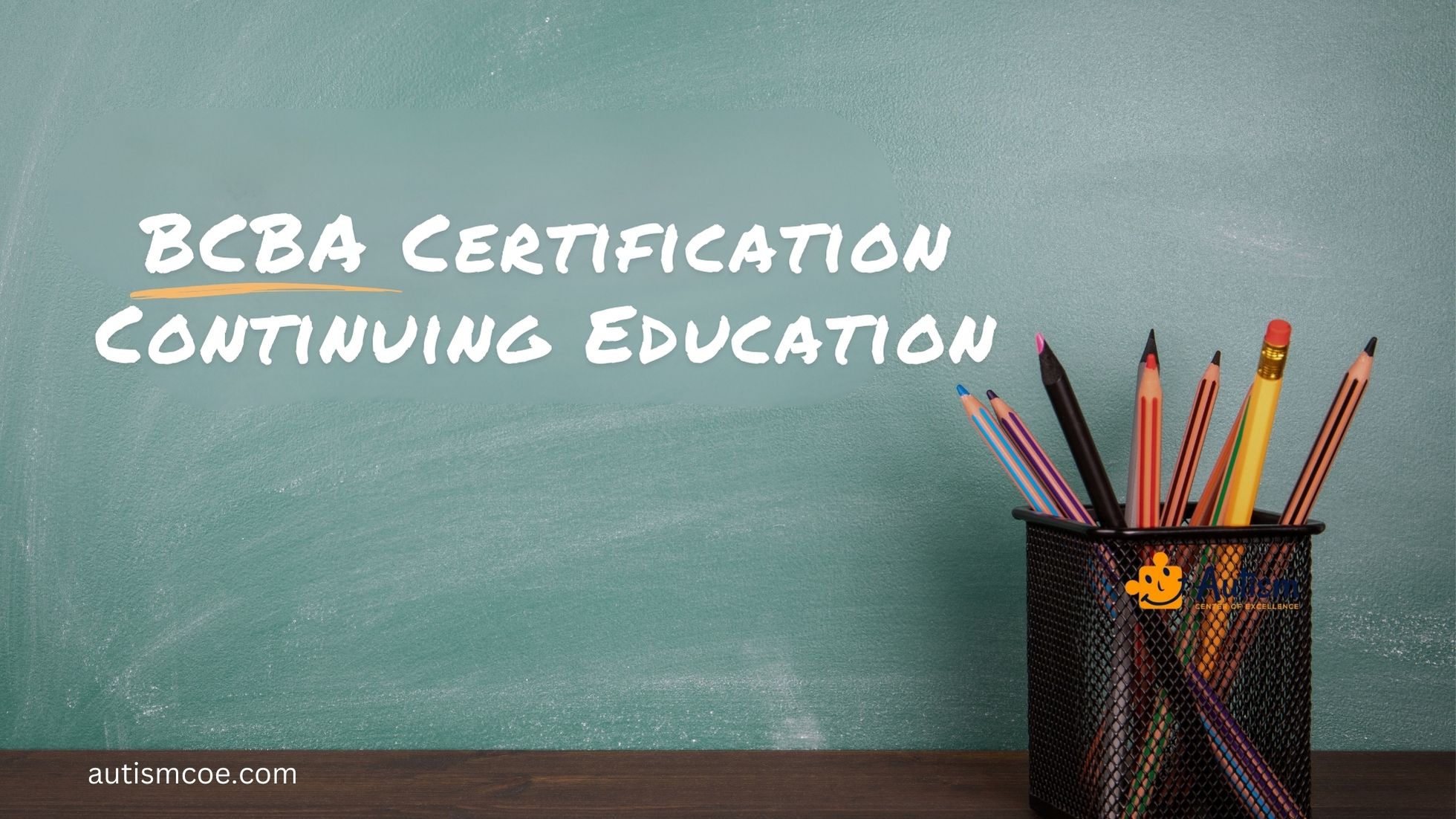
Step 5: Maintain Your License and Certification
Earning BCBA certification is a major accomplishment but it is a starting point in your professional life. You need to take continuing education and comply with the Behavior Analyst Certification Board (BACB)’s Professional and Ethical Compliance Code for Behavior Analysts in order to maintain your license and certification.
Continuing education units (CEUs) are a requirement for recertification every two years. These units are achieved through the attendance of activities that aim at keeping you informed on the latest research, best practices, and developments in the area of ABA.
The BACB enumerates an approved list of contact hours (CEU) activities, which can be attending conferences, completing work related courses, publishing research, and so on. Be prepared and actively pursue these chances, since they will not only earn you the CEUs but also keep your career growing.
In addition, professionalism is of great importance. The ethical rules of the BACB are a foundation of BCBA practice. They make sure that you act with honesty, and courtesy, and in the best interests of your clients and the profession.
Remember, you, as a BCBA, can be the driving force in the behavior analysis field. Your education, experience, and determination to further professional development, who will serve as an example of a rewarding and respectable career committed to others.
Frequently Asked Questions & Answer
How Many Years of College Do You Need to Be a BCBA?
In order to become a Board Certified Behaviour Analyst (BCBA), one has to be educated and trained for a few years. Here’s a breakdown of the general timeline:
- Earn a Bachelor’s Degree: The process of a bachelor’s degree accomplishment usually takes about four years.
- Obtain a Master’s Degree: After the undergraduate degree, people usually spend another two years studying for a master’s degree in a related area.
- Complete Supervised Practicum: As a BCBA candidate, one should complete a supervised practicum of at least 1,000 hours of behavioral-analytic graduate coursework.
In general, the process of becoming a BCBA can last between six to eight years, including both undergraduate and graduate education as well as practical experience.
Can I Become a BCBA with a Masters in Social Work?
Yes, you can become a BCBA with a master’s in social work by completing additional coursework in behavior analysis and meeting the supervised experience requirements outlined by the Behavior Analyst Certification Board (BACB).
What is the Difference Between ABA Certificate and BCBA Certificate?
The completion of a particular training program in applied behavior analysis, usually for those interested in learning the basics and acquiring skills in this area, is the usual standard for an ABA certificate. BCBA certification is a graduate-level certification which signifies a high qualification and expertise in behavior analysis, which entails a complete educational background, practical experience and passing the BCBA examination.
Essentially, if an ABA certificate means basic training, the BCBA certification means a higher level of proficiency in behavior analysis and therapy.
What are the Steps to Becoming a BCBA?
Here is a simplified breakdown of these steps:
- Earn a Bachelor’s Degree
- Join the Master’s Degree Program
- Acquire BCBA Supervised Fieldwork Experience.
- Appear on the BCBA Certification Exam.
- Certification and Licensure Application
- Maintain Your License and Certification
Conclusion
The road to BCBA certification is one that needs commitment, determination, and a sincere wish to help others. If you now follow the steps described above, you are on your way to accomplishing this distinguished credential and being a great help to those whom you serve. Bear in mind to concentrate on every step and get help from other experienced professionals during the process. Persistence and effort will enable you to qualify for the team of highly skilled and respected behavior analysts who are the frontrunners in the quest to bring positive changes to Individuals with Behavioral Challenges. Thus, just go and start this rewarding journey of becoming a BCBA! Keep learning, stay up to date, and advance the field – the world needs more compassionate and competent Behavior Analysts.
Autism Center of Excellence is a leading organization that has a primary objective of offering complete materials, training, and support that are aimed at those who are in the process of becoming Board-Certified Behavior Analysts (BCBAs). Our goal in giving a platform on how we utilize the best approaches of Applied Behavior Analysis (ABA) Therapy professionally is to enrich the path of aspiring professionals with crucial collateral and educational opportunities while preparing them for BCBA certification.
The organization actively recruits BCBAs, Registered Behavior Technicians (RBTs), and Behavior Technicians (BTs) and provides the necessary advice and tools for a successful career in the industry. Comprised of an experienced team of professionals ranging from Board Certified Behavior Analysts (BCBAs) to Associate Clinical Directors, AutismCOE offers a substantial contribution to Functional Assessment Models and intervention techniques in the realm of ABA Therapy for Early Childhood Intervention.
Please Note: The content of this blog is for informational purposes only and should not be considered a substitute for professional medical advice, diagnosis, or treatment. Consult a qualified health care professional for personalized guidance tailored to your specific situation.

Bhavika Bhasin
Bhavika Bhasin is the Research and Marketing officer at AutismCOE. She works with children and adults with ASD. Her clinical research includes evaluating various available autism screening and diagnosis methods and their efficacy. She is currently developing a novel screening exam that is indicated to be more accurate than the existing available exams. She is also writes articles papers for various publications.


